Bass Sheet Music
 "Kenny Burrell is the grand master of jazz guitar." Dizzy Gillespie - Jazz Musician
"Kenny Burrell is the grand master of jazz guitar." Dizzy Gillespie - Jazz Musician
Real Book

The Real Book refers to compilations of lead sheets for jazz standards. It usually refers to the first volume of a series of books transcribed and collated by Berklee College of Music students during the 1970s.The name is derived from "fake books", so called because they contained only rough outlines of music pieces rather than fully notated scores. Early fake books were often used by professional bands who performed mostly standards, often more geared to society and dance bands rather than jazz ensembles, and devoted much space to show tunes, novelty tunes, traditional jazz, etc. The first three Real Book volumes, in contrast, contained many bebop and other jazz standards that were likely to be encountered on jazz gigs at the time. For this reason, the books were quickly adopted among jazz players in the 1970s, particularly on the east coast.
Ostrikov
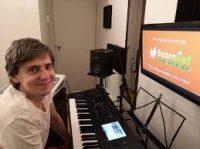
Composer, pianist, software QA analyst, industrial electronics developer, programmer, auto mechanic… who else?
Vernon Reid

Vernon Alphonsus Reid is an English-born American guitarist and songwriter. Reid is the founder and primary songwriter of the rock band Living Colour, Reid was named No. 66 on Rolling Stone magazine's 2003 list of the 100 Greatest Guitarists of All Time.
Ray Henderson
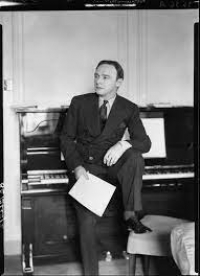
Ray Henderson (December 1, 1896 – December 31, 1970), was an American songwriter.
Born Raymond Brost in Buffalo, New York, Henderson moved to New York City and became a popular composer in Tin Pan Alley. He was one third of a successful songwriting and music publishing team with Lew Brown and Buddy De Sylva from 1925 through 1930, responsible for several editions of the revue called George White's Scandals and such book musicals as Good News, Hold Everything!, and Follow Thru. After De Sylva's departure, Henderson continued to write with Brown through 1933, then worked with other partners. In 1934 he composed the musical Say When with lyricist Ted Koehler.
Henderson's biggest hit songs included "That Old Gang of Mine", "Annabelle" (both 1923), "Bye Bye Blackbird", "Five Foot Two, Eyes of Blue", "I'm Sitting on Top of the World" (all 1925), "The Varsity Drag" (1927), "You're The Cream In My Coffee" (1928), "Button Up Your Overcoat", "You Are My Lucky Star" "I'm A Dreamer, Aren't We All", "Keep Your Sunny Side Up" (1929), "The Thrill Is Gone", and "Life Is Just a Bowl of Cherries" (1931).
Born Raymond Brost in Buffalo, New York, Henderson moved to New York City and became a popular composer in Tin Pan Alley. He was one third of a successful songwriting and music publishing team with Lew Brown and Buddy De Sylva from 1925 through 1930, responsible for several editions of the revue called George White's Scandals and such book musicals as Good News, Hold Everything!, and Follow Thru. After De Sylva's departure, Henderson continued to write with Brown through 1933, then worked with other partners. In 1934 he composed the musical Say When with lyricist Ted Koehler.
Henderson's biggest hit songs included "That Old Gang of Mine", "Annabelle" (both 1923), "Bye Bye Blackbird", "Five Foot Two, Eyes of Blue", "I'm Sitting on Top of the World" (all 1925), "The Varsity Drag" (1927), "You're The Cream In My Coffee" (1928), "Button Up Your Overcoat", "You Are My Lucky Star" "I'm A Dreamer, Aren't We All", "Keep Your Sunny Side Up" (1929), "The Thrill Is Gone", and "Life Is Just a Bowl of Cherries" (1931).
Nathan East

Nathan Harrell East is an American jazz, R&B, and rock bass player and vocalist. With more than 2,000 recordings, East is considered one of the most recorded bass players in the history of music. East holds a Bachelor of Arts degree in Music from the University of California, San Diego.
Charles Mingus
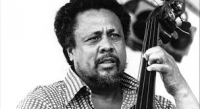
Charles Mingus Jr. (April 22, 1922 – January 5, 1979) was an American jazz double bassist, pianist, composer and bandleader. A major proponent of collective improvisation, he is considered to be one of the greatest jazz musicians and composers in history, with a career spanning three decades and collaborations with other jazz legends such as Louis Armstrong, Duke Ellington, Charlie Parker, Dizzy Gillespie, Dannie Richmond, and Herbie Hancock.
Mingus' compositions continue to be played by contemporary musicians ranging from the repertory bands Mingus Big Band, Mingus Dynasty, and Mingus Orchestra, to the high school students who play the charts and compete in the Charles Mingus High School Competition. In 1993, the Library of Congress acquired Mingus's collected papers—including scores, sound recordings, correspondence and photos—in what they described as "the most important acquisition of a manuscript collection relating to jazz in the Library's history"
Mingus' compositions continue to be played by contemporary musicians ranging from the repertory bands Mingus Big Band, Mingus Dynasty, and Mingus Orchestra, to the high school students who play the charts and compete in the Charles Mingus High School Competition. In 1993, the Library of Congress acquired Mingus's collected papers—including scores, sound recordings, correspondence and photos—in what they described as "the most important acquisition of a manuscript collection relating to jazz in the Library's history"
Monica Dominique
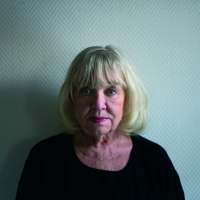
Monica Dominique (née Danielsson, born 20 July 1940 in Västerås) is a Swedish pianist, composer, and actress.As a student Monica Dominique attended the Adolf Fredrik's Music School in Stockholm. She was educated at the Royal College of Music, Stockholm, and has been active as a versatile but mainly jazz musician since the 1960s. In the early 1970s, she played in the group Solar Plexus. She started her career as an actress in 1969, playing the character Lotten in the TV movie Spader, Madame. She continued her acting career well into the late 1990s.
Erik Mongrain
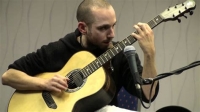
Erik Mongrain is a Canadian composer and guitarist. He has a unique and dark acoustic style, with a wide array of different techniques, approaches and textures reminiscent of Michael Hedges.
Chucho Valdés
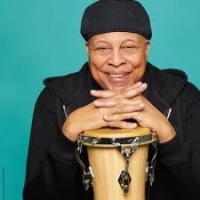
Jesús Valdés Rodríguez, better known as Chucho Valdés (born October 9, 1941), is a Cuban pianist, bandleader, composer and arranger whose career spans over 50 years. An original member of the Orquesta Cubana de Música Moderna, in 1973 he founded the group Irakere, one of Cuba's best-known Latin jazz bands. Both his father, Bebo Valdés, and his son, Chuchito, are pianists as well. As a solo artist, he has won four Grammy Awards and three Latin Grammy Awards.
Alexandra Burke

Alexandra Imelda Cecelia Ewen Burke is a British singer, songwriter and actress. She won the fifth series of the British television series The X Factor in 2008, and has been signed to Epic Records, RCA Records and Syco Music.
Traditional

Dominik Feri

Dominik Feri (born 11 July 1996) is a Czech former politician who was a Member of the Chamber of Deputies from 2017 to 2021. Elected at the age of 21, he is the youngest and the first black member of the Chamber of Deputes in the history of the Czech Republic.Feri plays accordion and piano. He stated that his opinions are close to those of the Czech Pirate Party.
Music theory

Music theory is the study of the practices and possibilities of music. The Oxford Companion to Music describes three interrelated uses of the term "music theory"
Ornette Coleman
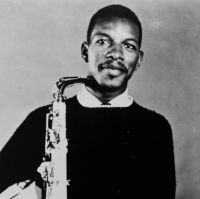
Randolph Denard Ornette Coleman, American jazz musician. The artist, who found free jazz, has tried many forms of music. Having completed his personal revolution in the second half of the 1950s, the artist radicalized the principles of bebop, which was considered the first upset of modern jazz
Howard Tate
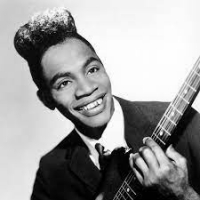
Howard Tate was an American soul singer and songwriter. His greatest success came with a string of hit singles in the late 1960s, including "Ain't Nobody Home" and "Get It While You Can," the latter of which became a hit when recorded by singer Janis Joplin.
Claude-Michel Schonberg
Claude-Michel Schönberg is a French record producer, actor, singer, songwriter, and musical theatre composer, best known for his collaborations with lyricist Alain Boublil. Major works include La Révolution Française, Les Misérables, Miss Saigon, Martin Guerre, The Pirate Queen, and Marguerite.
Seth Woodard

Seth Woodard's Music and Design for Marching Band and Percussion.
Rimsky-Korsakoff
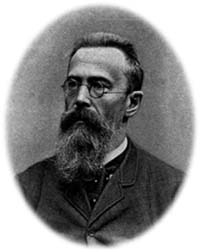
Nikolai Andreyevich Rimsky-Korsakov, also Nikolay, Nicolai, and Rimsky-Korsakoff, (18 March 1908) was a Russian composer, one of Russian composers known as "The Five", and was later a teacher of harmony and orchestration. He is particularly noted for a predilection for folk and fairy-tale subjects, and for his extraordinary skill in orchestration, which may have been influenced by his synesthesia. The first part of his surname, Rimsky, is due to the fact that some of his forefathers undertook a pilgrimage to Rome.
Like his compatriot Cui, he expended his greatest efforts on his 15 operas. Subjects range from historical melodramas (The Tsar's Bride) to folk operas (May Night) to fairytales and legends (Snowmaiden, Kashchey the Immortal and The Tale of Tsar Saltan). In juxtaposed depictions of real and fantastic, the operas invoke folk melodies, realistic declamation, lyrical melodies, and artificially-constructed harmonies with effective orchestral expression. Most of Rimsky-Korsakov's operas remain in the standard repertoire in Russia to this day. While the operas themselves are not well-known in the West, many selections are familiar to Western audiences. These excerpts include "The Dance of the Tumblers" from Snowmaiden, "Procession of the Nobles" from Mlada, "Song of the Indian Guest" (or, less accurately, "Song of India,") from Sadko, and "Flight of the Bumblebee" from Tsar Saltan, as well as suites from The Golden Cockerel and The Legend of the Invisible City of Kitezh and the Maiden Fevroniya.
Rimsky-Korsakov's status in the West has long been based on his orchestral compositions. Best known among these are Capriccio espagnol, Russian Easter Festival Overture, and the symphonic suite Scheherazade. Scheherazade is often cited as a textbook example of Russian orientalism. Likewise, while Capriccio espagnol could be considered a continuation of Glinka's Spanish Fantasies pittoresques, the vibrancy of Rimsky-Korsakov's orchestration far outshines Glinka's effort. It also served as a model for Maurice Ravel's Rapsodie espagnole.
Smaller-scaled works include dozens of art songs, arrangements of folk songs, some chamber and piano music, and a considerable number of choral works, both secular and for Russian Orthodox Church service, including settings of portions of the Liturgy of St. John Chrysostom (the latter despite his staunch atheism).
Like his compatriot Cui, he expended his greatest efforts on his 15 operas. Subjects range from historical melodramas (The Tsar's Bride) to folk operas (May Night) to fairytales and legends (Snowmaiden, Kashchey the Immortal and The Tale of Tsar Saltan). In juxtaposed depictions of real and fantastic, the operas invoke folk melodies, realistic declamation, lyrical melodies, and artificially-constructed harmonies with effective orchestral expression. Most of Rimsky-Korsakov's operas remain in the standard repertoire in Russia to this day. While the operas themselves are not well-known in the West, many selections are familiar to Western audiences. These excerpts include "The Dance of the Tumblers" from Snowmaiden, "Procession of the Nobles" from Mlada, "Song of the Indian Guest" (or, less accurately, "Song of India,") from Sadko, and "Flight of the Bumblebee" from Tsar Saltan, as well as suites from The Golden Cockerel and The Legend of the Invisible City of Kitezh and the Maiden Fevroniya.
Rimsky-Korsakov's status in the West has long been based on his orchestral compositions. Best known among these are Capriccio espagnol, Russian Easter Festival Overture, and the symphonic suite Scheherazade. Scheherazade is often cited as a textbook example of Russian orientalism. Likewise, while Capriccio espagnol could be considered a continuation of Glinka's Spanish Fantasies pittoresques, the vibrancy of Rimsky-Korsakov's orchestration far outshines Glinka's effort. It also served as a model for Maurice Ravel's Rapsodie espagnole.
Smaller-scaled works include dozens of art songs, arrangements of folk songs, some chamber and piano music, and a considerable number of choral works, both secular and for Russian Orthodox Church service, including settings of portions of the Liturgy of St. John Chrysostom (the latter despite his staunch atheism).
Michael Patti
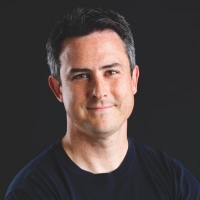
Michael Patti is a composer, orchestrator and synthestrator of music for film and games in Los Angeles, ..Works with: Azeroth Music Movies: Speechless, Look Away, Love Thy Neighbor Albums: StarCraft II: Legacy of the Void
W.A. Mozart

Wolfgang Amadeus Mozart (German: , full baptismal name Johannes Chrysostomus Wolfgangus Theophilus Mozart (27 January 1756 – 5 December 1791), was a prolific and influential composer of the Classical era. He composed over 600 works, many acknowledged as pinnacles of symphonic, concertante, chamber, piano, operatic, and choral music. He is among the most enduringly popular of classical composers.
Mozart showed prodigious ability from his earliest childhood in Salzburg. Already competent on keyboard and violin, he composed from the age of five and performed before European royalty; at 17 he was engaged as a court musician in Salzburg, but grew restless and traveled in search of a better position, always composing abundantly. While visiting Vienna in 1781, he was dismissed from his Salzburg position. He chose to stay in the capital, where he achieved fame but little financial security. During his final years in Vienna, he composed many of his best-known symphonies, concertos, and operas, and the Requiem. The circumstances of his early death have been much mythologized. He was survived by his wife Constanze and two sons.
Mozart learned voraciously from others, and developed a brilliance and maturity of style that encompassed the light and graceful along with the dark and passionate—the whole informed by a vision of humanity "redeemed through art, forgiven, and reconciled with nature and the absolute." His influence on subsequent Western art music is profound. Beethoven wrote his own early compositions in the shadow of Mozart, of whom Joseph Haydn wrote that "posterity will not see such a talent again in 100 years."
Mozart showed prodigious ability from his earliest childhood in Salzburg. Already competent on keyboard and violin, he composed from the age of five and performed before European royalty; at 17 he was engaged as a court musician in Salzburg, but grew restless and traveled in search of a better position, always composing abundantly. While visiting Vienna in 1781, he was dismissed from his Salzburg position. He chose to stay in the capital, where he achieved fame but little financial security. During his final years in Vienna, he composed many of his best-known symphonies, concertos, and operas, and the Requiem. The circumstances of his early death have been much mythologized. He was survived by his wife Constanze and two sons.
Mozart learned voraciously from others, and developed a brilliance and maturity of style that encompassed the light and graceful along with the dark and passionate—the whole informed by a vision of humanity "redeemed through art, forgiven, and reconciled with nature and the absolute." His influence on subsequent Western art music is profound. Beethoven wrote his own early compositions in the shadow of Mozart, of whom Joseph Haydn wrote that "posterity will not see such a talent again in 100 years."
Albinoni

Tomaso Giovanni Albinoni (8 June 1671, Venice, Republic of Venice – 17 January 1751, Venice, Republic of Venice) was a Venetian Baroque composer. While famous in his day as an opera composer, he is mainly remembered today for his instrumental music, some of which is regularly recorded.
Herbie Hancock

Herbert Jeffrey "Herbie" Hancock (born April 12, 1940) is an American pianist and composer. He is regarded not only as one of the greatest living jazz musicians, but also as one of the most influential jazz musicians of the 20th century. His music embraces elements of funk and soul while adopting freer stylistic elements from jazz. In his jazz improvisation, he possesses a unique creative blend of jazz, blues, and modern classical music, with harmonic stylings much like the styles of Claude Debussy and Maurice Ravel.
As part of Miles Davis's "second great quintet," Hancock helped redefine the role of a jazz rhythm section, and was one of the primary architects of the "post-bop" sound. Later, he was one of the first jazz musicians to embrace synthesizers and funk. Hancock's music is often melodic and accessible; he has had many songs "cross over" and achieved success among pop audiences.
Herbie's best-known solo works include "Cantaloupe Island," "Watermelon Man" (later performed by dozens of musicians, including bandleader Mongo Santamaria), "Maiden Voyage," "Chameleon," and the singles " I Thought It Was You" and "Rockit." His 2007 tribute album "River: The Joni Letters" won the 2007 Grammy Award for Album of the Year, only the second jazz album ever to win the award after 1965's Getz/Gilberto.
He is an adherent of the Nichiren school of Mahayana Buddhism.
As part of Miles Davis's "second great quintet," Hancock helped redefine the role of a jazz rhythm section, and was one of the primary architects of the "post-bop" sound. Later, he was one of the first jazz musicians to embrace synthesizers and funk. Hancock's music is often melodic and accessible; he has had many songs "cross over" and achieved success among pop audiences.
Herbie's best-known solo works include "Cantaloupe Island," "Watermelon Man" (later performed by dozens of musicians, including bandleader Mongo Santamaria), "Maiden Voyage," "Chameleon," and the singles " I Thought It Was You" and "Rockit." His 2007 tribute album "River: The Joni Letters" won the 2007 Grammy Award for Album of the Year, only the second jazz album ever to win the award after 1965's Getz/Gilberto.
He is an adherent of the Nichiren school of Mahayana Buddhism.
Billos Caracas Boy
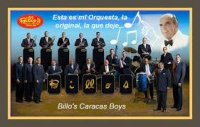
Billo's Caracas Boys Boy group Active from: 1940 Songs Caracas Baile de Carnaval · 1962 Cumbia caletera Grandes leyendas de la música · 1996 La Casa De Fernando Gitana · 1976.
Ettore Pozzoli
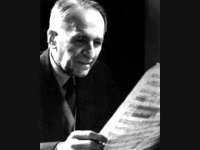
Ettore Pozzoli (July 23, 1873 – November 9, 1957) was an Italian classical pianist and composer.Born in the Italian city of Seregno, Ettore Pozzoli began his career soon after he received his music diploma from the Milan Conservatory in 1895. While writing music for piano and orchestra, he started teaching at the Milan Conservatory. His works on theory and solfeggio, even nowadays considered the basis of the studies of any pianist, are known for the progressive difficulty, for harmony and counterpoint. His composition “Danza fantastica” was chosen in 1956 as the compulsory piece for competitors at the sixth World Accordion Contest in Gdańsk. Pozzoli died on 9 November 1957 in Seregno (Italy), where, since 1959, an international piano contest in his honour takes place organized by the City.
Tchaikovsky

Pyotr Il'yich Tchaikovsky (May 7 1840 â November 6 1893) was a Russian composer of the Romantic era. While not part of the nationalistic music group known as "The Five", Tchaikovsky wrote music which, in the opinion of Harold Schonberg, was distinctly Russian: plangent, introspective, with modally-inflected melody and harmony.
Aesthetically, Tchaikovsky remained open to all aspects of Saint Petersburg musical life. He was impressed by Serov and Balakirev as well as the classical values upheld by the conservatory. Both the progressive and conservative camps in Russian music at the time attempted to win him over. Tchaikovsky charted his compositional course between these two factions, retaining his individuality as a composer as well as his Russian identity. In this he was influenced by the ideals of his teacher Nikolai Rubinstein and Nikolai's brother Anton.
Tchaikovsky's musical cosmopolitanism led him to be favored by many Russian music-lovers over the "Russian" harmonies and styles of Mussorgsky, Borodin and Rimsky-Korsakov.
Nonetheless he frequently adapted Russian traditional melodies and dance forms in his music, which enhanced his success in his home country. The success in St. Petersburg at the premiere of his Third Orchestral Suite may have been due in large part to his concluding the work with a polonaise. He also used a polonaise for the final movement of his Third Symphony.
Aesthetically, Tchaikovsky remained open to all aspects of Saint Petersburg musical life. He was impressed by Serov and Balakirev as well as the classical values upheld by the conservatory. Both the progressive and conservative camps in Russian music at the time attempted to win him over. Tchaikovsky charted his compositional course between these two factions, retaining his individuality as a composer as well as his Russian identity. In this he was influenced by the ideals of his teacher Nikolai Rubinstein and Nikolai's brother Anton.
Tchaikovsky's musical cosmopolitanism led him to be favored by many Russian music-lovers over the "Russian" harmonies and styles of Mussorgsky, Borodin and Rimsky-Korsakov.
Nonetheless he frequently adapted Russian traditional melodies and dance forms in his music, which enhanced his success in his home country. The success in St. Petersburg at the premiere of his Third Orchestral Suite may have been due in large part to his concluding the work with a polonaise. He also used a polonaise for the final movement of his Third Symphony.
John Mackey
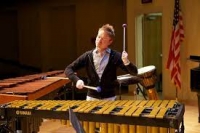
John Mackey (born October 1, 1973) is an American composer of contemporary classical music, with an emphasis on music for wind band, as well as orchestra. For several years, he focused on music for modern dance and ballet.John Mackey was born in New Philadelphia, Ohio and grew up in Westerville, Ohio, where he attended Westerville South High School. Though musicians themselves, Mackey's parents did not provide him with music lessons, and he never formally studied an instrument. His grandfather, however, taught him to read music and introduced him to digital music notation.
Rick van Veldhuizen

Rick van Veldhuizen - composer. 201 likes · 1 talking about this. Rick van Veldhuizen (*1994); contemporary composer. Student at the Conservatory of...
Laura Hackett

Laura Hackett Park, is an American contemporary worship musician. Love Will Have Its Day was released by Forerunner Music on October 21, 2014. This album would be her breakthrough release on the Billboard charts.
Frank Wildhorn, Leslie Bricusse
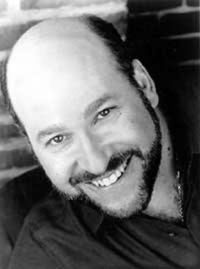
Frank Wildhorn (born 1959) is an American composer known for his musicals and popular songs.
Leslie Bricusse (29 January 1931) is a British lyricist and composer.
Although best known for his partnership with Anthony Newley, Bricusse has worked with many other composers. Whilst at Cambridge University, he was Secretary of Footlights between 1952 and 1953 and Footlights President during the following year. He married the actress Yvonne Romain.
Leslie Bricusse (29 January 1931) is a British lyricist and composer.
Although best known for his partnership with Anthony Newley, Bricusse has worked with many other composers. Whilst at Cambridge University, he was Secretary of Footlights between 1952 and 1953 and Footlights President during the following year. He married the actress Yvonne Romain.
Al Jarreau
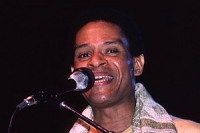
Alwin "Al" Lopez Jarreau (March 12, 1940 – February 12, 2017) was an American singer and musician. He received a total of seven Grammy Awards and was nominated for over a dozen more. Jarreau is perhaps best known for his 1981 album Breakin' Away. He also sang the theme song of the late-1980s television series Moonlighting, and was among the performers on the 1985 charity song "We Are the World."
Stevie Wonder

Stevie Wonder (born Stevland Hardaway Judkins on May 13, 1950, name later changed to Stevland Hardaway Morris) is an American singer-songwriter, multi-instrumentalist, and record producer. A prominent figure in popular music during the latter half of the 20th century , Wonder has recorded more than thirty top ten hits, won 26 Grammy Awards (a record for a solo artist), plus one for lifetime achievement, won an Academy Award for Best Song and been inducted into both the Rock and Roll and Songwriters halls of fame. He has also been awarded the Polar Music Prize.
Blind from infancy, Wonder signed with Motown Records as a pre-adolescent at age twelve, and continues to perform and record for the label to this day. He has nine U.S. number-one hits to his name (on the pop Charts, 20 U.S. R&B number one hits), and album sales totaling more than 150 million units. Wonder has recorded several critically acclaimed albums and hit singles, and writes and produces songs for many of his label mates and outside artists as well. Wonder plays the piano, synthesizer, harmonica, congas, drums, bongos, organ, melodica, and clavinet. In his early career, he was best known for his harmonica work, but today he is better known for his keyboard skills and vocals.
Blind from infancy, Wonder signed with Motown Records as a pre-adolescent at age twelve, and continues to perform and record for the label to this day. He has nine U.S. number-one hits to his name (on the pop Charts, 20 U.S. R&B number one hits), and album sales totaling more than 150 million units. Wonder has recorded several critically acclaimed albums and hit singles, and writes and produces songs for many of his label mates and outside artists as well. Wonder plays the piano, synthesizer, harmonica, congas, drums, bongos, organ, melodica, and clavinet. In his early career, he was best known for his harmonica work, but today he is better known for his keyboard skills and vocals.
Django Reinhardt
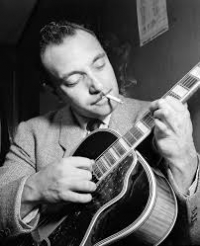
Jean Reinhardt (23 January 1910 – 16 May 1953), known by his stage name Django Reinhardt (French: or ), was a Belgian-born Romani-French jazz guitarist and composer, regarded as one of the greatest musicians of the twentieth century. He was the first jazz talent to emerge from Europe and remains the most significant.:cover
With violinist Stéphane Grappelli, Reinhardt formed the Paris-based Quintette du Hot Club de France in 1934. The group was among the first to play jazz that featured the guitar as a lead instrument. Reinhardt recorded in France with many visiting American musicians, including Coleman Hawkins and Benny Carter, and briefly toured the United States with Duke Ellington's orchestra in 1946. He died suddenly of a stroke at the age of 43.
Reinhardt's most popular compositions have become standards within gypsy jazz, including "Minor Swing", "Daphne", "Belleville", "Djangology", "Swing '42", and "Nuages". Jazz guitarist Frank Vignola claims that nearly every major popular-music guitarist in the world has been influenced by Reinhardt. Over the last few decades, annual Django festivals have been held throughout Europe and the U.S., and a biography has been written about his life. In February 2017, the Berlin International Film Festival held the world premiere of the French film, Django
With violinist Stéphane Grappelli, Reinhardt formed the Paris-based Quintette du Hot Club de France in 1934. The group was among the first to play jazz that featured the guitar as a lead instrument. Reinhardt recorded in France with many visiting American musicians, including Coleman Hawkins and Benny Carter, and briefly toured the United States with Duke Ellington's orchestra in 1946. He died suddenly of a stroke at the age of 43.
Reinhardt's most popular compositions have become standards within gypsy jazz, including "Minor Swing", "Daphne", "Belleville", "Djangology", "Swing '42", and "Nuages". Jazz guitarist Frank Vignola claims that nearly every major popular-music guitarist in the world has been influenced by Reinhardt. Over the last few decades, annual Django festivals have been held throughout Europe and the U.S., and a biography has been written about his life. In February 2017, the Berlin International Film Festival held the world premiere of the French film, Django
Gaspar Cassado
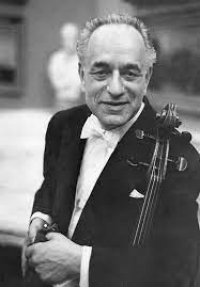
Gaspar Cassadó i Moreu was a Spanish cellist and composer of the early 20th century. He was born in Barcelona to a church musician father, Joaquim Cassadó, and began taking cello lessons at age seven
Paul Clark
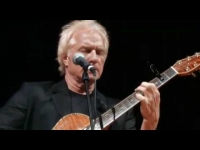
Paul Clark is a musician who was involved in the Jesus music movement and early contemporary Christian music industry. He was born in Kansas City and recorded his first album in 1971, Songs from the Saviour Vol 1. Its songs became one of the first signs of the growing "Jesus movement" of the early 70s.
Jerome Kern

Jerome David Kern (January 27, 1885 – November 11, 1945) was an American composer of musical theatre and popular music. One of the most important American theatre composers of the early 20th century, he wrote more than 700 songs, used in over 100 stage works, including such classics as "Ol' Man River", "Can't Help Lovin' Dat Man", "A Fine Romance", "Smoke Gets in Your Eyes", "All the Things You Are", "The Way You Look Tonight", "Long Ago (and Far Away)" and "Who?". He collaborated with many of the leading librettists and lyricists of his era, including George Grossmith Jr., Guy Bolton, P. G. Wodehouse, Otto Harbach, Oscar Hammerstein II, Dorothy Fields, Johnny Mercer, Ira Gershwin and E. Y. Harburg.
A native New Yorker, Kern created dozens of Broadway musicals and Hollywood films in a career that lasted for more than four decades. His musical innovations, such as 4/4 dance rhythms and the employment of syncopation and jazz progressions, built on, rather than rejected, earlier musical theatre tradition. He and his collaborators also employed his melodies to further the action or develop characterization to a greater extent than in the other musicals of his day, creating the model for later musicals. Although dozens of Kern's musicals and musical films were hits, only Show Boat is now regularly revived. Songs from his other shows, however, are still frequently performed and adapted. Although Kern detested jazz arrangements of his songs, many have been adopted by jazz musicians to become standard tunes.
A native New Yorker, Kern created dozens of Broadway musicals and Hollywood films in a career that lasted for more than four decades. His musical innovations, such as 4/4 dance rhythms and the employment of syncopation and jazz progressions, built on, rather than rejected, earlier musical theatre tradition. He and his collaborators also employed his melodies to further the action or develop characterization to a greater extent than in the other musicals of his day, creating the model for later musicals. Although dozens of Kern's musicals and musical films were hits, only Show Boat is now regularly revived. Songs from his other shows, however, are still frequently performed and adapted. Although Kern detested jazz arrangements of his songs, many have been adopted by jazz musicians to become standard tunes.
Dave Holland

Born in Wolverhampton, England, Holland taught himself how to play stringed instruments, beginning at four on the ukulele, then graduating to guitar and later bass guitar. He quit school at the age of 15 to pursue his profession in a top 40 band, but soon gravitated to jazz. After seeing an issue of Down Beat where Ray Brown had won the critics' poll for best bass player, Holland went to a record store, and bought a couple of LPs featuring Brown backing pianist Oscar Peterson. He also bought two Leroy Vinnegar albums (Leroy Walks! and Leroy Walks Again) because the bassist was posed with his instrument on the cover. Within a week, Holland traded in his bass guitar for an acoustic bass and began practicing with the records. In addition to Brown and Vinnegar, Holland was drawn to the bassists Charles Mingus and Jimmy Garrison.
After moving to London in 1964, Holland played acoustic bass in small venues and studied with James Edward Merrett, principal bassist of the Philharmonia Orchestra and, later, the BBC Symphony Orchestra. Merrett trained him to sight read and then recommended he apply to the Guildhall School of Music and Drama. Holland received a full-time scholarship for the three-year programme. At 20, Holland was keeping a busy schedule in school, studios and Ronnie Scott's Jazz Club, London's premier jazz club, where he often played in bands that supported such touring American jazz saxophonists as Coleman Hawkins, Ben Webster and Joe Henderson. He also linked up with other British jazz musicians, including guitarist John McLaughlin, saxophonist Evan Parker, reedsman John Surman, South Africa-born London-based pianist Chris McGregor, and drummer John Stevens, and performed on the Spontaneous Music Ensemble's 1968 album Karyobin. He also began a working relationship with Canada-born, England-based trumpeter Kenny Wheeler that continued until Wheeler's death in 2014
After moving to London in 1964, Holland played acoustic bass in small venues and studied with James Edward Merrett, principal bassist of the Philharmonia Orchestra and, later, the BBC Symphony Orchestra. Merrett trained him to sight read and then recommended he apply to the Guildhall School of Music and Drama. Holland received a full-time scholarship for the three-year programme. At 20, Holland was keeping a busy schedule in school, studios and Ronnie Scott's Jazz Club, London's premier jazz club, where he often played in bands that supported such touring American jazz saxophonists as Coleman Hawkins, Ben Webster and Joe Henderson. He also linked up with other British jazz musicians, including guitarist John McLaughlin, saxophonist Evan Parker, reedsman John Surman, South Africa-born London-based pianist Chris McGregor, and drummer John Stevens, and performed on the Spontaneous Music Ensemble's 1968 album Karyobin. He also began a working relationship with Canada-born, England-based trumpeter Kenny Wheeler that continued until Wheeler's death in 2014
Lester Young
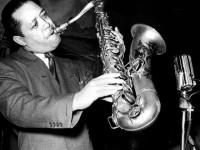
Lester Willis Young, nicknamed "Pres" or "Prez", was an American jazz tenor saxophonist and occasional clarinetist. Coming to prominence while a member of Count Basie's orchestra, Young was one of the most influential players on his instrument.
Kansas
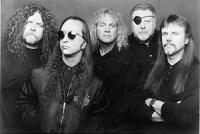
Kansas is an American progressive rock band which became a popular arena rock group in the 1970s, with hit singles such as "Carry On Wayward Son" and "Dust in the Wind". Kansas has remained a classic rock radio staple and a popular touring act in North America and Europe.
Bill Evans

William John Evans, known as Bill Evans (August 16, 1929 – September 15, 1980) was an American jazz pianist. His use of impressionist harmony, inventive interpretation of traditional jazz repertoire, and trademark rhythmically independent, "singing" melodic lines influenced a generation of pianists, including Chick Corea, Herbie Hancock, John Taylor, Steve Kuhn, Don Friedman, Denny Zeitlin, Bobo Stenson and Keith Jarrett, as well as guitarists Lenny Breau and Pat Metheny. The music of Bill Evans continues to inspire younger pianists like Marcin Wasilewski, Fred Hersch, Ray Reach, Bill Charlap, Lyle Mays, Eliane Elias and arguably Brad Mehldau, early in his career.
Evans is an inductee of the Down Beat Jazz Hall of Fame.
Evans is an inductee of the Down Beat Jazz Hall of Fame.
Koen Dejonghe

Koen Dejonghe has held a position at the conservatory in Antwerp since 1986, teaching practical harmony and improvisation. He currently also gives classes in accompaniment, instrumental ensemble performance and harmony and counterpoint at the music academies of Sint-Niklaas and Antwerp.
Vinicius de Moraes
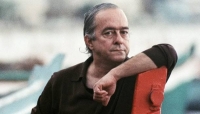
Marcus Vinicius da Cruz e Mello Moraes, also known as Vinicius de Moraes and nicknamed O Poetinha, was a Brazilian poet, lyricist, essayist, and playwright. He served as a diplomat, composed bossa nova music, and recorded several albums.
Billy May
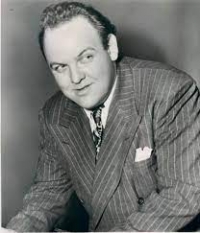
Edward William May Jr. was an American composer, arranger and trumpeter. He composed film and television music for The Green Hornet, The Mod Squad, Batman, and Naked City. He collaborated on films such as Pennies from Heaven, and orchestrated Cocoon, and Cocoon: The Return, among others.
Lipps Inc.
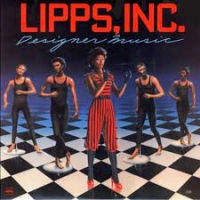
Lipps Inc. was an American disco and funk group from Minneapolis, Minnesota. The group is best known for the chart-topping 1980 worldwide hit single "Funkytown", which hit No. 1 in 28 countries and was certified as double platinum in sales.
The Kinks
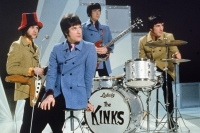
The Kinks were an English rock band formed in Muswell Hill, north London, in 1963 by brothers Ray and Dave Davies. They are regarded as one of the most influential rock bands of the 1960s. The band emerged during the height of British rhythm and blues and Merseybeat, and were briefly part of the British Invasion of the United States until their touring ban in 1965. Their third single, the Ray Davies-penned "You Really Got Me", became an international hit, topping the charts in the United Kingdom and reaching the Top 10 in the United States.
Antonio Carlos Jobim

Antonio Carlos Brasileiro de Almeida Jobim (January 25, 1927 in Rio de Janeiro – December 8, 1994 in New York City), also known as Tom Jobim, was a Grammy Award-winning Brazilian songwriter, composer, arranger, singer, and pianist/guitarist. A primary force behind the creation of the bossa nova style, Jobim is acknowledged as one of the most influential popular composers of the 20th century. His songs have been performed by many singers and instrumentalists within Brazil and internationally.
Tim Risher
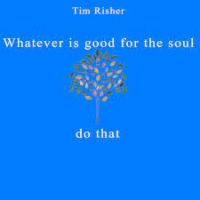
Tim Risher is an American composer. Risher received his B.A. in Music at the University of Central Florida and his M.M. in music composition from Florida State University. While living in Tallahassee, Florida, Risher was a member of the new music ensembles Paragaté and Tallahassee Camerata.
Walter Schneider-Argenbühl
Walter Schneider-Argenbühl Composer Born: September 26, 1924 Died: July 4, 2000.
Pixinguinha
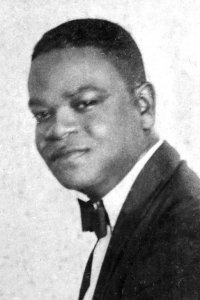
Alfredo da Rocha Viana Filho, known as Pixinguinha (Portuguese: ; April 23, 1897 – February 17, 1973) was a Brazilian composer, arranger, flautist and saxophonist born in Rio de Janeiro. Pixinguinha is considered one of the greatest Brazilian composers of popular music, particularly within the genre of music known as choro. By integrating the music of the older choro composers of the 19th century with contemporary jazz-like harmonies, Afro-Brazilian rhythms, and sophisticated arrangements, he introduced choro to a new audience and helped to popularize it as a uniquely Brazilian genre.
Louis Armstrong

Louis Armstrong (4 August 1901 – July 6, 1971), nicknamed Satchmo or Sachimo and Pops, was an American jazz trumpeter and singer.
Coming to prominence in the 20s as an innovative cornet and trumpet virtuoso, Armstrong was a foundational influence on jazz, shifting the music's focus from collective improvisation to solo performers. With his distinctive gravelly voice, Armstrong was an influential singer, demonstrating great dexterity as an improviser, bending the lyrics and melody of a song for expressive purposes. He was also greatly skilled at scat singing, or wordless vocalizing.
Renowned for his charismatic stage presence, Armstrong's influence extended well beyond jazz, and by the end of his career in the '60s, he was widely regarded as a profound influence on popular music in general: critic Steve Leggett describes Armstrong as "perhaps the most important American musician of the 20th century."
Coming to prominence in the 20s as an innovative cornet and trumpet virtuoso, Armstrong was a foundational influence on jazz, shifting the music's focus from collective improvisation to solo performers. With his distinctive gravelly voice, Armstrong was an influential singer, demonstrating great dexterity as an improviser, bending the lyrics and melody of a song for expressive purposes. He was also greatly skilled at scat singing, or wordless vocalizing.
Renowned for his charismatic stage presence, Armstrong's influence extended well beyond jazz, and by the end of his career in the '60s, he was widely regarded as a profound influence on popular music in general: critic Steve Leggett describes Armstrong as "perhaps the most important American musician of the 20th century."
Soundgarden

Soundgarden was an American rock band formed in Seattle, Washington, in 1984 by singer and rhythm guitarist Chris Cornell, lead guitarist Kim Thayil, and bassist Hiro Yamamoto. Matt Cameron became the band's full-time drummer in 1986, while bassist Ben Shepherd became a permanent replacement for Yamamoto in 1990.
Harold Arlen

Harold Arlen (February 15, 1905 – April 23, 1986) was an American composer of popular music. Having written over 500 songs, a number of which have become known the world over. In addition to being the composer of The Wizard of Oz, Arlen is a highly regarded contributor to the Great American Songbook. His 1938 song "Over the Rainbow” was voted the twentieth century's No. 1 song by the Recording Industry Association of America (RIAA) and the National Endowment for the Arts (NEA).
Delaney & Bonnie
Delaney & Bonnie were an American duo of singer-songwriters Delaney Bramlett and Bonnie Bramlett. In 1969 and 1970, they fronted a rock/soul ensemble, Delaney & Bonnie and Friends, whose members at ...
Herb Alpert
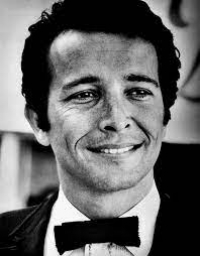
Herb Alpert (born March 31, 1935) is an American trumpeter who led Herb Alpert & the Tijuana Brass in the 1960s. During the same decade, he co-founded A&M Records with Jerry Moss.His career highlights as a musician include recording five No. 1 albums; charting 28 albums on the Billboard magazine album chart; achieving sales of 14 platinum albums and 15 gold albums; and earning nine Grammy Awards. He has sold 72 million records worldwide. Alpert is the only musician to hit No. 1 on the U.S. Billboard Hot 100 pop chart as both a vocalist ("This Guy's in Love with You", 1968) and an instrumentalist ("Rise", 1979).
 Sheet Music Network is a site for those who wants to access popular sheet music easily,
letting them download the sheet music for free for trial purposes.
It's completely free to download and try the listed sheet music, but you have to delete the files after 24 hours of trial.
Don't forget, if you like the piece of music you have just learned playing,
treat the artist with respect, and go buy the original sheet music.
Sheet Music Network is a site for those who wants to access popular sheet music easily,
letting them download the sheet music for free for trial purposes.
It's completely free to download and try the listed sheet music, but you have to delete the files after 24 hours of trial.
Don't forget, if you like the piece of music you have just learned playing,
treat the artist with respect, and go buy the original sheet music.